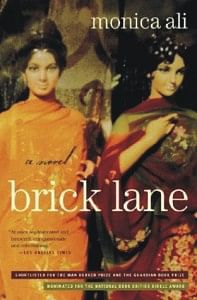Controversy over
'Brick Lane'
Shabbir A. Bashar, PhD, Vancouver, Washington, USA
As your readers may be aware, there seems to be a brewing controversy over the book entitled "Brick Lane" by Monica Ali, a female writer born to a Bangladeshi father and raised in Britain. Some of the Sylheti residents of Brick Lane (mostly middle aged men) are said to be up-in arms about the book's rendition into a movie. Their slated feelings against the writer are so strong that these have manifested themselves into street protests in Brick Lane in London.As an expatriate Bangladeshi who lived in London for over a decade, I have to admit that I enjoyed reading Ms Ali's book because I could relate to the events, the places and the characters of her book both in London and in Bangladesh. As a Bangla interpreter for the British courts, social, health, prison and immigration services, I have come into closer contact with the Sylheti community in London that most other "Dhakaia" Bangladeshis might otherwise do in the course of their stay in the United Kingdom. It is therefore with some degree of confidence I can state that characters like Nazneen and Chanu, the doctor, Nazneen's lover, her neighbours really do exist however much painful it may be to accept it. I have met young, battered Bangladeshi women in shelters still in their teens and twenties who were married off to people twice their age; a Bangladeshi man who was serving a custodial sentence for the murder of his unfaithful wife as well as children whose alcoholic Bangladeshi mother had been fighting a custody battle with the grandparents. Having now crossed the Atlantic, and made the United States my new home, I have equally enjoyed reading Jhumpa Lahiri ("The Namesake" and "The Interpreter of Maladies"), a talented female writer of my generation who was born to Bengali parents but grew up mostly in the East Coast of the US. I have a three-year-old daughter who is American by birth, and British, Irish and Bangladeshi by heritage. I am sure some day she will grow up and want to know about all her forefathers. Essentially, writers like Lahiri and Ali help reconcile the cultural gaps between the first and second-generation immigrants that have naturally emerged in the Bangladeshi/Bengali diaspora in the UK, US and elsewhere. I don't expect to impose any cultural values over my daughter but hope to guide her to become a well-rounded, confident and successful person who can be proud of all her heritage. My daughter is the embodiment of a world that is increasingly becoming a melting pot. So what is this foul cry in Bangla Town's Brick Lane really all about? It's about that age old evil called "power". The Sylheti community in Britain has been one of Bangladesh's greatest exports; they have made Bangladeshi food the national food of Britain. Not only did they play a crucial role by raising public awareness of the atrocities committed by the Pakistani army against us during the war of independence, but they continue to be a major force in transforming Sylhet into one of the most developed places in the "old country".
|

|